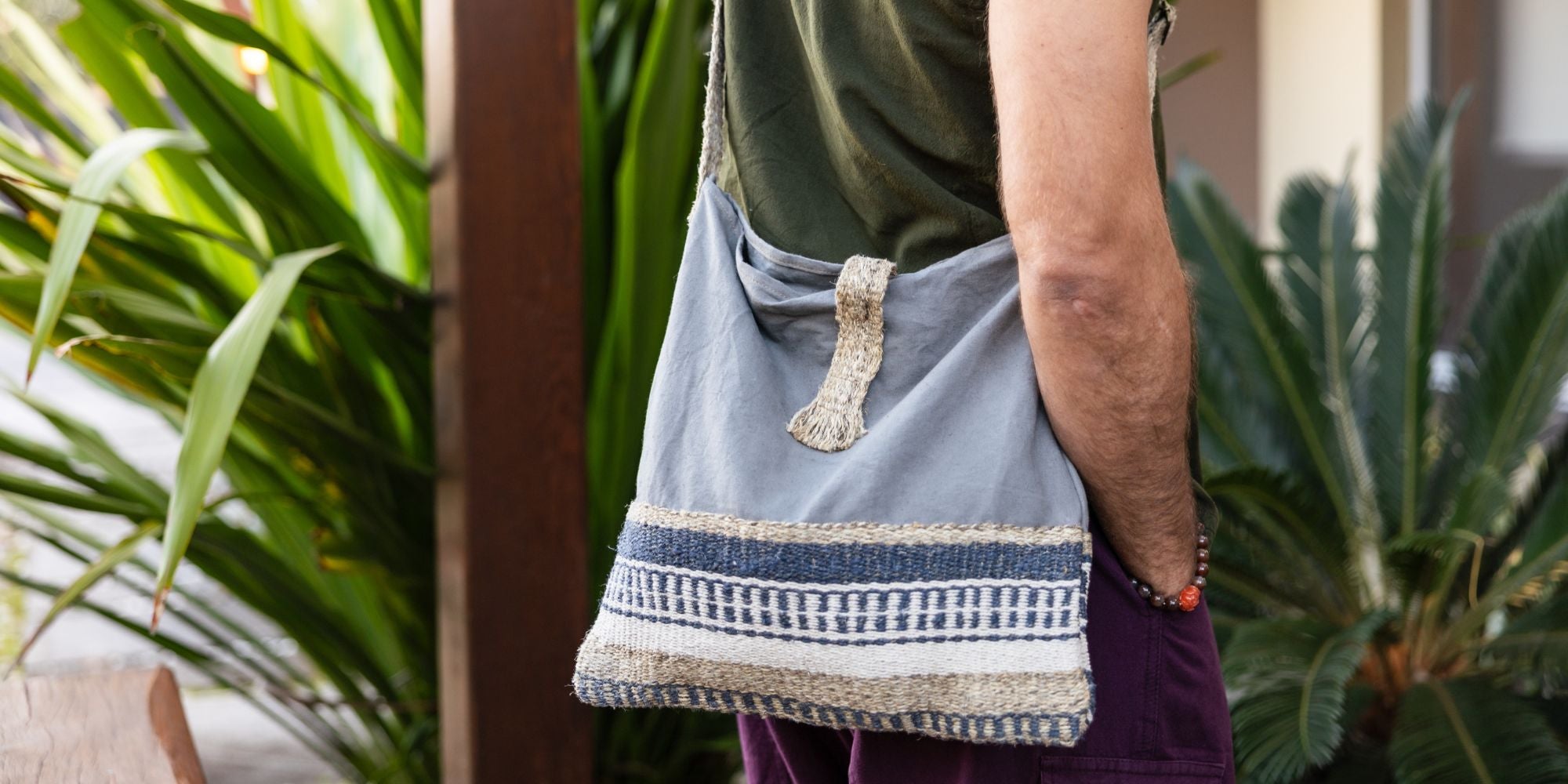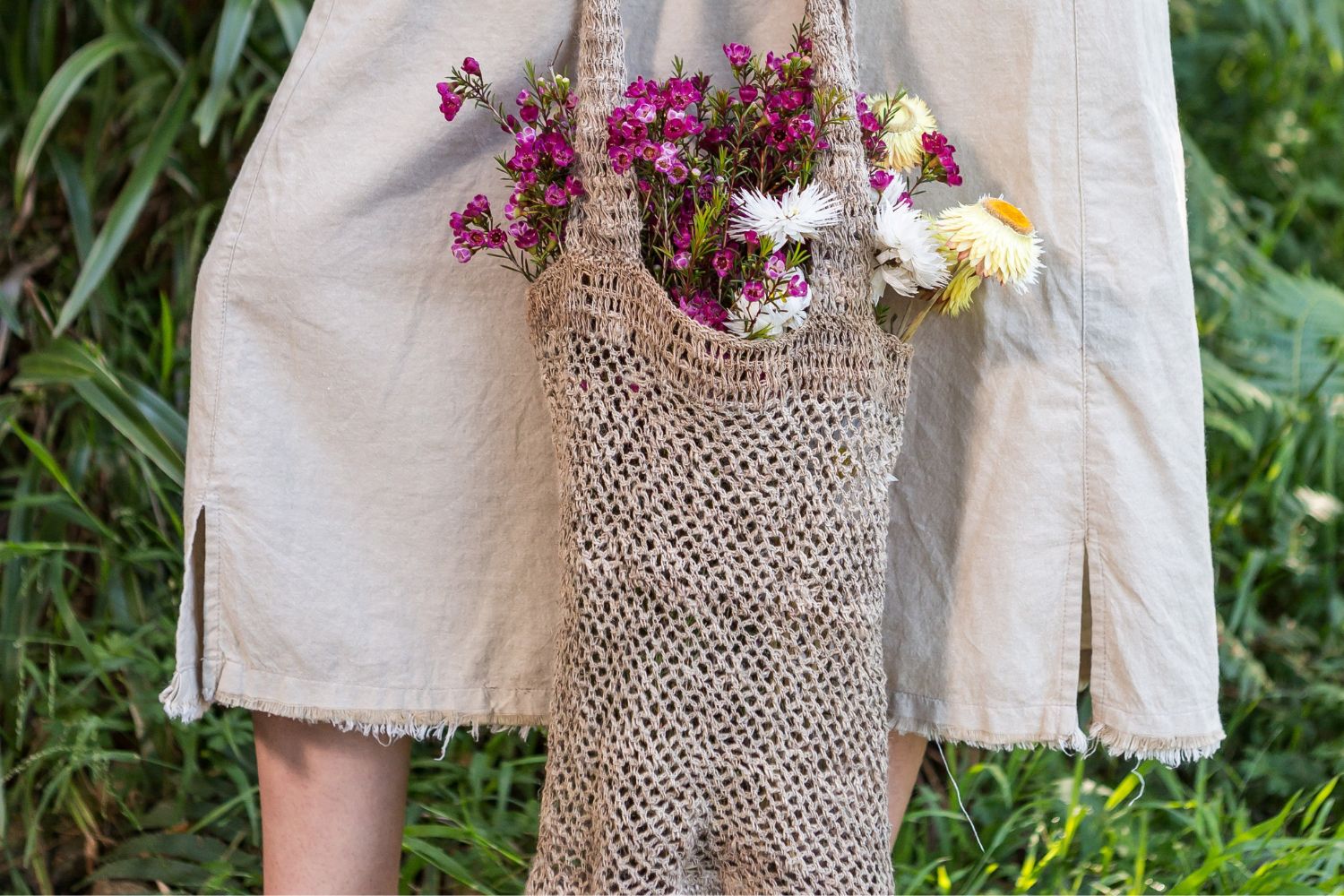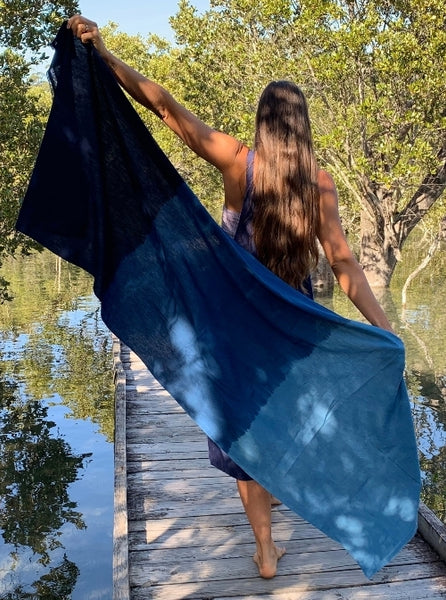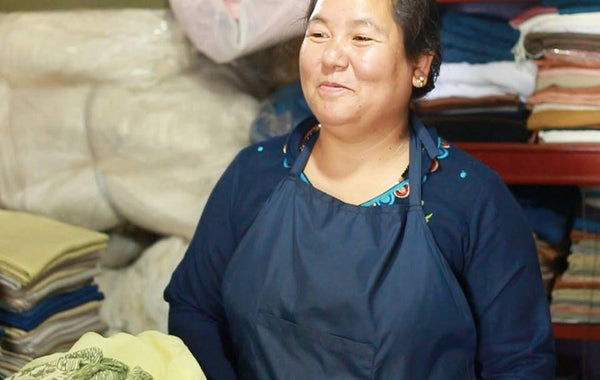
Please meet Shanti, the woman behind the small business Kakani Himalayan Natural Dyes (KHND), our natural dyeing partners in Nepal. We had just received a new shipment of our stunning hemp throws, this time dyed using tumeric, and as always I was in awe and wanted to tell you all a little bit more about her and how her business evolved.
A teeny tiny bit difficult to conduct an interview though, since new isolation laws and border restrictions in both Australia and Nepal mean that we probably won't be able to visit again soon. So we did a little 'iso' interview.
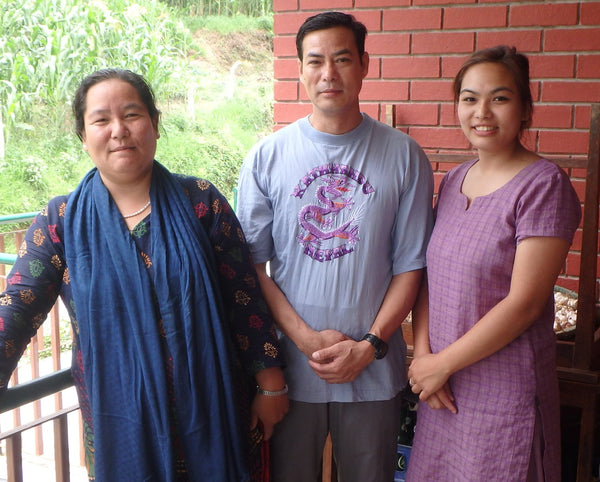
Originally from Kathmandu, Shanti and her husband got out of the city and moved to the rural location of Kakani to become strawberry farmers in 2005. Kakani is famous for the delicious strawberries grown in the area, and they decided to try farming them and raising goats instead of city life. Unfortunately being new to both the rural lifestyle and the farming sector, the business failed pretty quickly and she and her husband lost their savings in the process.
Shanti says of what she learned during (and because of) those hardships:
1. Research your idea and have intimate knowledge about how to succeed in that industry before beginning any new business venture
2. Start small and invest gradually rather than investing all your capital at once
3. Choose your business partners wisely (or go it alone if you can).
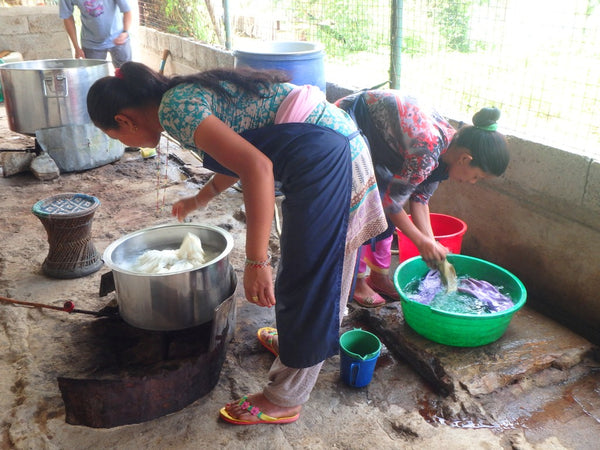
"I always wanted to start my own business. I had never got the chance or had the time before, but what pushed me this time was because of my bad financial status after the heavy loss in our farming business. I was not even able to pay my daughters school fees."
Fortunately she heard about training for unemployed women in Kakani through FBPWN (Federation of Business and Professional Women Nepal) and applied. They were conducting training in strawberry jam making, candle making, soap making and of course natural dyeing. Shanti was selected for the natural dyeing program and hasn't looked back.
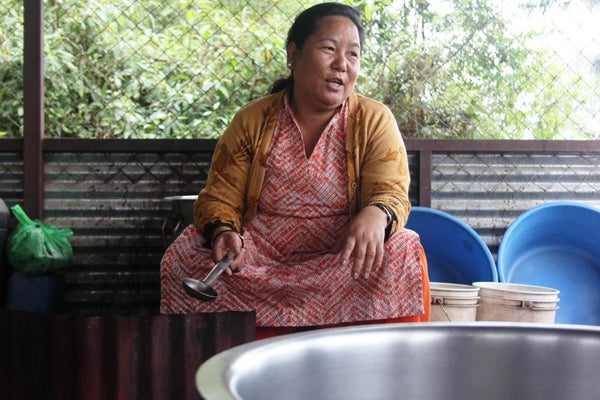
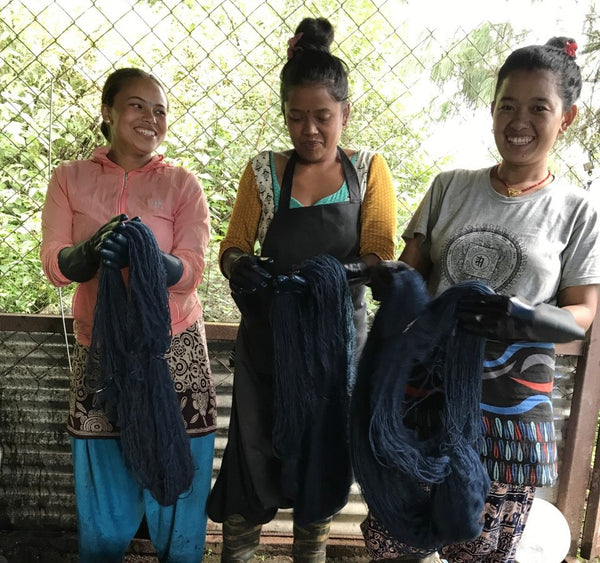



"Now I recall it as being very fortunate to be chosen for natural dyeing. I was selected along with four of my friends / sisters. We completed the basic training course and then did the advanced training one year later in 2008."

They registered their business in 2011 and set about overcoming the many challenges that a new enterprise involves. The business took 2 years to start to generate an income as Shanti had another steep learning curve in marketing and finding a buyer for her products. She had to find and approach stores and social enterprise retail operations to get her products out there. They set up at local markets and fairs. Eventually with the help of Change Fusion in Nepal they reached a niche market of international purchasers and began to become profitable.
She also had opposition to her new business venture in her village in Kakani. Natural dyeing was new to the area and many people didn't believe that women could succeed in this new business.
"You know how women are treated in rural areas - even in cities too actually. Some of my neighbors also suggested me to leave this and start any other profitable business. But I believed in myself and my team so we just went on and on and never stopped. Which brought me here today. I’m so glad and happy."

Today Shanti and her daughter Sara employ 25 local women in their business; 15 knitters, 6 dyers, 2 to collect the raw materials, 1 tailor and 1 accountant. They purposely have an all female team to support rural women and Shanti trains each new employee personally.
"I love the way we work together as a family rather than workers and owners. We share things and gossip about everything in life when we are dyeing. So it is fun."
Shanti's daughter Sara is hugely involved in the business as well, and is responsible for creating new dye colours. Each year fashion trends dictate new popular colours and Sara creates new colours by experimenting and mixing different dyes together. She is also a gorgeous model for the business.

The next step Shanti would like for her business is to find the workshop space to be able to increase production. She says that she "would like to contribute more to the ethical market here in Nepal, and of course in the many other countries that we are supplying."
We are proud to be supporting Shanti, Sara and their team of lovely ladies. We wish them all the love and luck in their business and look forward to many more years of partnership with them.

Until next time,
Mel





